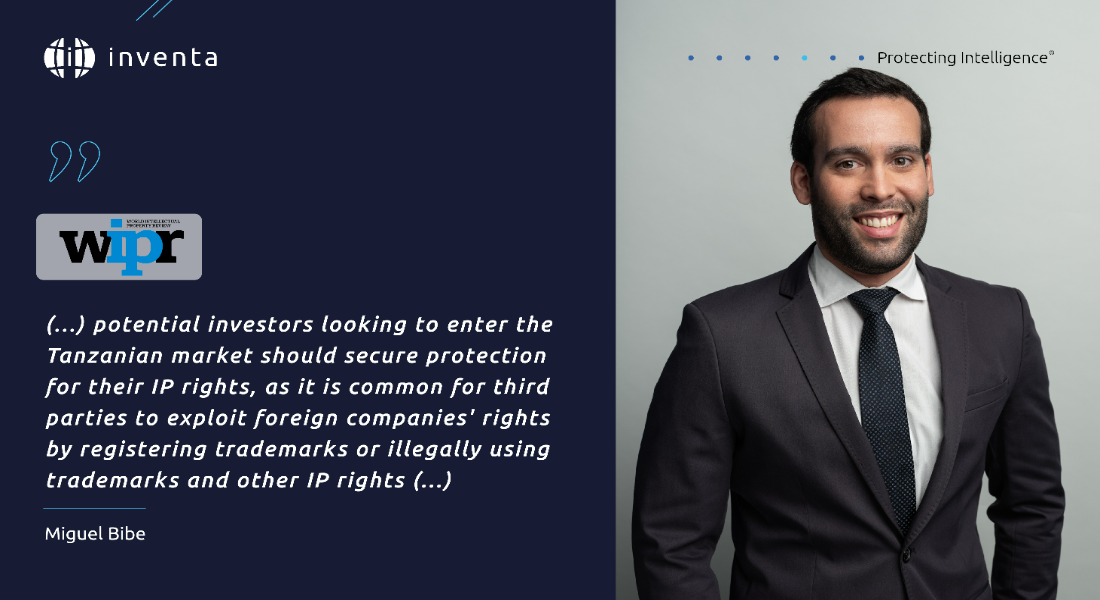
How Tanzania boosted confidence in IP by training judges
An article on December 29, 2023, in the Daily News reported that Tanzania has gained international recognition for its efforts to bolster its capacity to administer justice and handle disputes in the realm of IP.
This recent acknowledgement follows multiple initiatives aimed at enhancing the knowledge of judges and magistrates, providing them with the opportunity to deepen their understanding of various complexities around IP legislation, thereby enabling more effective management of court cases.
According to Chief Court Administrator Elisante Ole Gabriel, Tanzania has undertaken several efforts through judicial administration to reinforce access, expediency, and security in resolving IP disputes, including the development of specific guidelines tailored for judges and magistrates. Additionally, Gabriel highlighted Tanzania's global ranking as second in terms of participation of judges and magistrates in training, trailing only behind Egypt.
He also underscored the close collaboration between Tanzanian judicial decision-makers and the World Intellectual Property Organization (WIPO), resulting in the development of guidelines that will serve as a benchmark for judges and magistrates in handling future cases involving copyrights, trademarks, patents, and industrial designs.
Gabriel noted that approximately 250 judges and magistrates participated in IP-focused distance learning programmes during 2022 and 2023, significantly enhancing their understanding and knowledge across different IP domains.
In his words “this demonstrates that the Tanzanian judiciary currently boasts a substantial number of judges and magistrates specialising in this area, providing excellent services for cases involving IP and offering education to various groups, including innovators, businesspeople, companies and industrial owners".
This economic growth trend, coupled with increased tourism, will likely attract potential investors to view Tanzania as an emerging market. However, potential investors looking to enter the Tanzanian market should secure protection for their IP rights, as it is common for third parties to exploit foreign companies' rights by registering trademarks or illegally using trademarks and other IP rights that do not belong to them.
WIPO collaboration
He also mentioned the active involvement of Tanzanian judges and magistrates in significant international conferences organised by WIPO annually in Geneva, facilitated through virtual platforms. These conferences aim to promote and facilitate the exchange of experiences and opinions on best practices for handling IP cases, enabling participants to learn and discuss different experiences and effective approaches from other countries to address the ongoing challenges in this area.
He added that "since 2019, a total of approximately 60 judges and magistrates have participated in these conferences".
Other highlights mentioned by Gabriel include collaborative efforts between judicial administration and WIPO, such as workshops and the compilation of summaries of decisions from the High Court and the Court of Appeal of Tanzania related to IP to assist judges in future cases. He particularly expressed satisfaction that some court decisions had been published on WIPO's official website.
The collaboration between Tanzanian judicial administration and WIPO commenced in 2019, with a Memorandum of Understanding signed on March 5, 2021, to formalise the partnership and expand the scope of collaboration to further enhance judicial administration in dispute resolution for IP processes. Collaboration areas include sharing experiences in decision-making and capacity-building for judges and magistrates through meetings, conferences, and various seminars.
Protecting rights in growing economy
This commitment to developing the skills of judicial decision-makers, particularly in IP, is crucial for a country striving for growth and improving socio-economic conditions. Despite potential challenges such as geopolitical conflicts, commodity price volatility, and climate change related disasters, Tanzania's economy grew by 5% in 2023 and is projected to grow by 5.5% in 2024, according to Finance Minister Mwigulu Nchemba and central bank governor Emmanuel Tutuba in a letter to the International Monetary Fund (IMF).
This economic growth trend, coupled with increased tourism, will likely attract potential investors to view Tanzania as an emerging market. However, potential investors looking to enter the Tanzanian market should secure protection for their IP rights, as it is common for third parties to exploit foreign companies' rights by registering trademarks or illegally using trademarks and other IP rights that do not belong to them.
This news will significantly increase investors' confidence in Tanzania, as better IP knowledge within the Tanzanian judicial administration will lead to faster dispute resolution and increased enforceability of legislation in defence of IP rights, a crucial factor for foreign investment in Tanzania and boosting economic development.
Besides the promotion of foreign investment, the protection and proper enforcement of IP laws encourage innovation and creativity. This can lead to the development of new technologies, products, and processes, driving economic growth and improving the country's global competitiveness. It will be a positive contribution to protecting the rights of entrepreneurs and startups, encouraging entrepreneurship, and facilitating the growth of new businesses, which will lead to job creation, increased income and growth in the private sector.
This is a co-published article, which was originally published in the World Intellectual Property Review (WIPR).
Currency Info
Final charges will be made in USD.
Currency conversion is for information purposes only and accuracy is not guaranteed. Overseas customers are encouraged to contact their bank or credit card provider for details on any additional fees these institutions may include for currency conversion.
- USD 312.389 NGN
Territory List
There are no results for your search.
- Africa
- Algeria
- Angola
- Benin
- Botswana
- Burkina Faso
- Burundi
- Cameroon
- Cape Verde
- Central African Republic
- Chad
- Comoros
- Congo (Republic)
- Côte d'Ivoire
- Democratic Republic of the Congo
- Djibouti
- Egypt
- Equatorial Guinea
- Eritrea
- Eswatini (Swaziland)
- Ethiopia
- Gabon
- Gambia
- Ghana
- Guinea
- Guinea-Bissau
- Kenya
- Lesotho
- Liberia
- Libya
- Madagascar
- Malawi
- Mali
- Mauritania
- Mauritius
- Mayotte
- Morocco
- Mozambique
- Namibia
- Niger
- Nigeria
- Réunion
- Rwanda
- Sao Tome and Principe
- Senegal
- Seychelles
- Sierra Leone
- Somalia
- South Africa
- South Sudan
- Sudan
- Tanzania (mainland)
- Togo
- Tunisia
- Uganda
- Western Sahara
- Zambia
- Zanzibar
- Zimbabwe
- Africa (OAPI)
- Africa (ARIPO)
- Other
- East Timor
- Macao
- Maldives
- Portugal
- European Patent (EPO)
- European Union Trademark (EUTM)
- International Trademark (Madrid System)
- Patent Cooperation Treaty (PCT)




